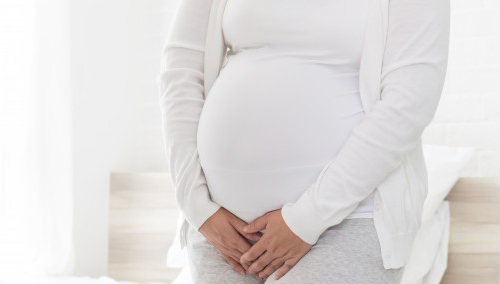11 Early Pregnancy Signs and Symptoms Along With Care & Diet
June 20, 2021 | by Divya Nelaturi | Posted in Nutrition Facts
Pregnancy is optimal when the mother is biologically mature. A biological mature female is young women who is at least 5 years post menarchial and this has greater impact on pregnancy than her chronological age. Adequate nutrition before and during pregnancy has greater potential for a long term health impact than it does at any other time.
Maternal health is a complex, influenced by various genetic, social and economic factors, infections and environmental conditions, many of which may affect the fetal growth. Physiological adaptations result in improved utilization of nutrients either through increased absorption, decreased excretion or alternations in metabolism.
Early signs of pregnancy :
1. Missed period:

The most common symptom of possible pregnancy is missed period. Woman with regular menstruation cycle who does not use birth control measures, the period that is late could be a sign for pregnancy. In some cases, there may be a small amount of bleeding at the time of menstruation. This happens when the fertilized egg implanted itself in the wall of your uterus. This kind of spotting or bleeding is usually harmless.
2. Fatigue and Tiredness:

Lots of changes start to occur as soon as you conceive. The rising level of progesterone makes you tired more easily, leaving you feeling fatigued and exhausted frequently. Lower blood pressure and glucose level amide pregnancy can likewise make you feel exceptionally drained. In the meantime, the body is making the placenta, the essential life emotionally supportive network for the embryo. This takes up all your vitality and causes you to feel tired. Weariness is most normal and the first and third trimesters. This early signs is not entirely obvious, as new moms frequently relate it to ordinary exhaustion.
3. Tender Breasts:

Swollen, heavier and tender breasts are first symptom once you have conceived. Because of the hormone changes the body on the breasts become swollen and sensitive. Tenderness in the breasts can be experienced as early as one week after conception. The discomfort diminisByhes significantly after the first trimester.
4. Dizziness:

This is one of the common signs that occurring around the time of your period. They are represented as light dizziness. The hormone named progesterone, the diluted blood vessels lowers the blood pressure this further lead to reduced blood flow in the brain which indicates with dizziness. Anemic women are more susceptible to dizziness than others.
5. Feeling Emotional:

Being emotionally weak and a little weepier combined with an experiencing mood swings is also part of being pregnant. This are also first symptom of early pregnancy. Hormonal changes affect neurotransmitters.
6. Increased sensitivity to smell:

During pregnancy woman becomes sensitive to smells. The olfactory system becomes affected by the hormonal changes in estrogen level, this further leads to more sensitive and reactive scents around them.
7. Nausea and Vomiting:

Nausea in pregnancy may be due to nervous disturbances, placental Protein intoxication or due to derangement in carbohydrate metabolism. Morning sickness of early pregnancy can be improved by small and frequent meals. Fairly dry and consisting cheifly of easily digested foods such as carbohydrates are more readily tolerated. Liquids may best be taken between meals instead of with food. If the condition develop to hyperemesis gravidrum, a severe prolonged persistant vomiting, peripheral parenteral nutrition and careful oral feeding is essential. Skim milk is better tolerated than whole milk. Fruits and vegetables can be given. Fatty rich foods, excessive seasoning, coffee in large amounts and strongly flavoured vegetables may be restricted or eliminated if the nausea persists. She should avoid becoming too hungry.
8. Cramping:

Some woman also experience cramping, which occurs a few days before the due date of their menstruation. This happens when the fertilized egg attaches to the lining of the uterus. It leads to uterine contractions that feel like cramps. This type of cramping is often mistaken for premenstrual syndrome (PMS) or menstrual cramps. An ultrasound or pregnancy test can help detect pregnancy.
9. Bloating:

Bloating can be also one of the early sign of pregnancy. Like many other symptoms of bloating can be caused by hormonal changes in the body amide pregnancy. As digestive related problems are common throughout pregnancy, adding more fiber into your diet, drinking more water and exercising regularly can help reduce the discomfort to a great extent.
10. Frequent Urination:

The increased volume of blood during pregnancy is filtered by the kidneys, making the bladder become full more quickly and resulting in more urination. At the same time, you may be more thirsty than usual. This is common sign for all stages of pregnancy. As the uterus wall expands to allow the baby to develop and grow, it reduces the amount of space for the bladder.
11. Heart Burn:

Increased progesterone production causes decreased tone and mobility of the smooth muscles of the gastrointestinal tract. This leads to regurgitation. In most cases, this is effect on pressure of the enlarged uterus on the stomach which in combination with the relaxation of the esophageal sphincter, results in occasional regurgitation of the stomach contents into the esophagus. Heart burn is a common complaint during the latter part of pregnancy. This can usually be relieved by small and frequent meals limiting the amount of food consumed at one time and drinking fluids between meals. Sitting upright after meals for at least 3 hours before lying down may also help.
12. Constipation:

The pressure of the enlarging uterus on the lower portion of the intestine, in addition to the hormonal muscle relaxant effect of placental hormones on the gastrointestinal tract may result in constipation. Physical inactivity may also make elimination difficult. Increased fluids intake and use of natural laxative foods such as whole grains, dried fruits and other fruits, vegetables that are rich fiber, juices usually induce regularity. Laxatives should be avoided. Regular habits of exercise and sleep are essential for proper elimination.
Other symptoms:
- Headaches caused by the hormonal changes and lowered blood volume into the brain.
- Sticky, white or pale yellow secretion in the early days of the first trimester.
- Elevated body temperature from several weeks after conception.
- Back pain in the first stage caused by poorly sleeping.
- Changes in appetite cause by nausea and vomiting.
Early pregnancy care:

- Drinks a lot of water
- Check your weight
- Eat a diet high in fruits and vegetables, proteins and fats
- Take care of your mental health
- Exercise regularly
Foods To Be Avoided:

- Raw or undercooked meat
- Liver and other foods contain vitamin A
- Under cooked ready meals
- Raw eggs or undercooked eggs
- Certain kinds of fish
- Alcohol & Caffeine
- Sugar rich foods
- Street foods
- Unpasteurized milk or raw milk.
- Cheese
- Unwashed fruits and vegetables.
Fruits to be avoided:
- Pine apple
- Papaya
- Pomegranate
- Sprouted potato
- Wild Cherry
- Peach
- Sesame seeds mixed with honey
Summary:
Unfortunately, many of these signs and symptoms are not unique to pregnancy. Some can indicate that your getting sick or that your period is about to start. Likewise, you can be pregnant without experiencing many of these symptoms. Still , if you miss a period and notice some of the above signs and symptoms take a home pregnancy test or see your health care provider. If your home pregnancy test is positive make an appointment with your health care provider. The sooner your pregnancy is confirmed , the sooner you can begin prenatal care.